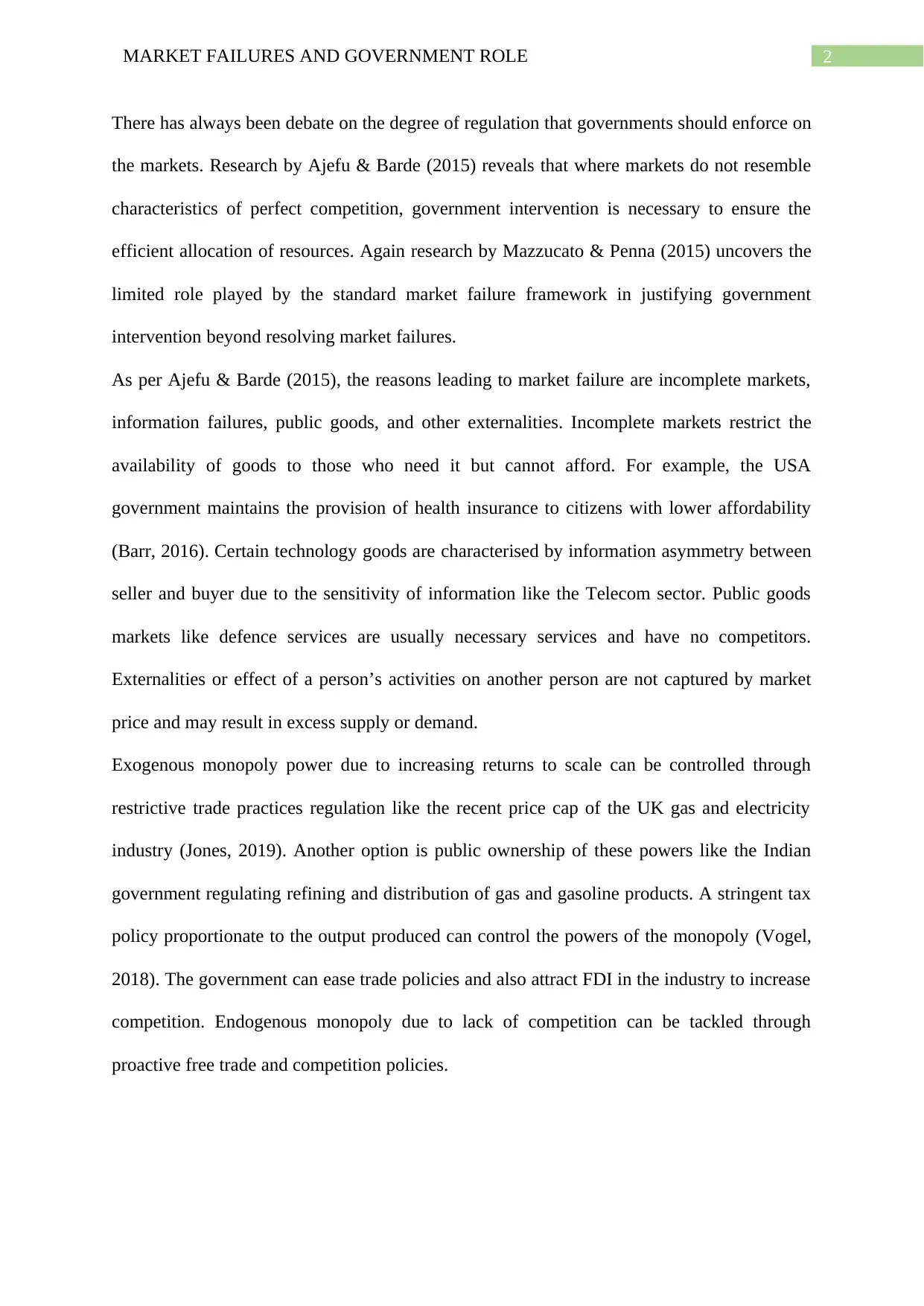Analyzing Market Failures and the Role of Government Intervention
VerifiedAdded on 2023/04/24
|4
|833
|498
Essay
AI Summary
This essay delves into the ongoing debate surrounding the extent of government regulation in markets, focusing on the necessity of intervention when markets deviate from perfect competition. It references research by Ajefu & Barde (2015) and Mazzucato & Penna (2015) to highlight the reasons for market failures, including incomplete markets, information failures, public goods, and externalities. The essay provides examples of government interventions such as healthcare provision, regulation of technology sectors, and management of monopolies through price controls, taxation, and trade policies. It explores how externalities are addressed through social control measures, subsidies, and taxes. It emphasizes the role of government in providing public goods and regulating markets exhibiting increasing returns to scale. The essay concludes by underscoring the importance of government regulation in addressing market imperfections, while also acknowledging the need to assess whether government actions improve overall outcomes.
1 out of 4











![[object Object]](/_next/static/media/star-bottom.7253800d.svg)